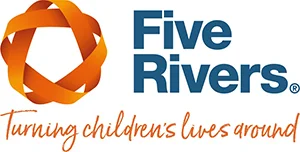How to Approach Mother’s Day with Children in Care
Thursday 24 March 2022
Last updated: Wednesday 19 March 2025
With Mother’s Day just around the corner, it’s that time of year when traditionally mother figures are appreciated and spoilt by their family. However, for many children across the UK, Mother’s Day can serve as a reminder that they are not part of a traditional family, whether through family separation, bereavement or perhaps they are in foster care or have adoptive parents.
Claire Friday, Child and Adolescent Psychotherapist at Five Rivers Child Care, shares advice on how to manage the feelings and behaviour triggering days like Mother’s day might cause.
Understanding children’s emotional responses
Mother’s Day will have a different meaning for every child, and this can be especially complex for young people in foster care. Some may be able to celebrate the day with their foster family and spend time with their birth family; whilst others might feel alienated and different from their friends, particularly at school where children are often encouraged to make cards for Mother’s Day. Speak with your foster child’s school in advance to make sure they are aware of the possible impact of these activities on your child.
It can often be a difficult day for children and young people living away from their families and mothers, and Mother’s Day can bring an acute feeling of absence. Other difficult feelings of separation, loss, and reminders of past experiences may come to the surface and affect your child’s mood, whether consciously or otherwise. Feelings can present as anger, sabotage, control, and trying hard to ‘be good’. Whilst Mother’s Day is a time to see family for many, this sense of connection and appreciation may in itself be a challenge and can be in direct conflict with a child’s experience.
Navigating celebrations with biological children
For foster families with biological children, it is important to help your foster children to feel included and involved in the family’s Mother’s Day celebrations, to show that they have been accepted into the family. If a child would prefer not to be involved, then it’s important that they are able to make this choice and are welcomed if they would like to join in later in the day.
Have an action plan
Foster parents can prepare to support a child by asking them how they feel about the day beforehand. This gives you a chance to sensitively plan ahead. Whether it is a day that is of little significance to a child or a day that carries a painful reminder of separation and loss, then understanding how the child feels will support foster families to respond sensitively and reduce the child in acting out their feelings.
If children do want to participate, then foster carers may offer the option of buying a flower for each mother figure they’ve had, whether it is a birth mother or foster mother. Planning ahead with the child will reduce anxiety levels as well as communicate to them that their feelings are accepted and understood and have a plan together if things become too much.
For younger children, and those who find it difficult to put their feelings into words, it is helpful to focus on behaviour as a way of communicating their feelings – think of the clues your child is giving about how they are feeling in how they are acting.
Lastly, Mother’s Day carries unique memories for everyone, and keeping communication open on the day will support your child to feel safe and able to express their feelings.
